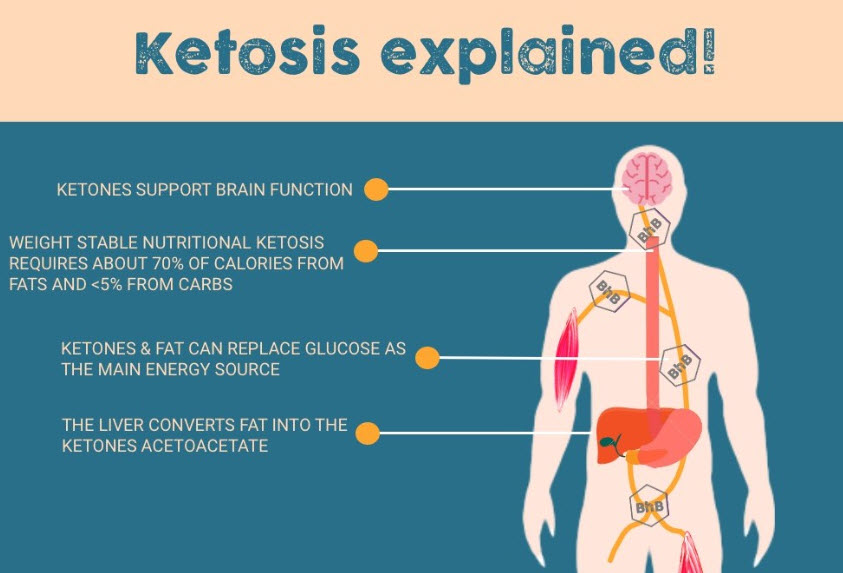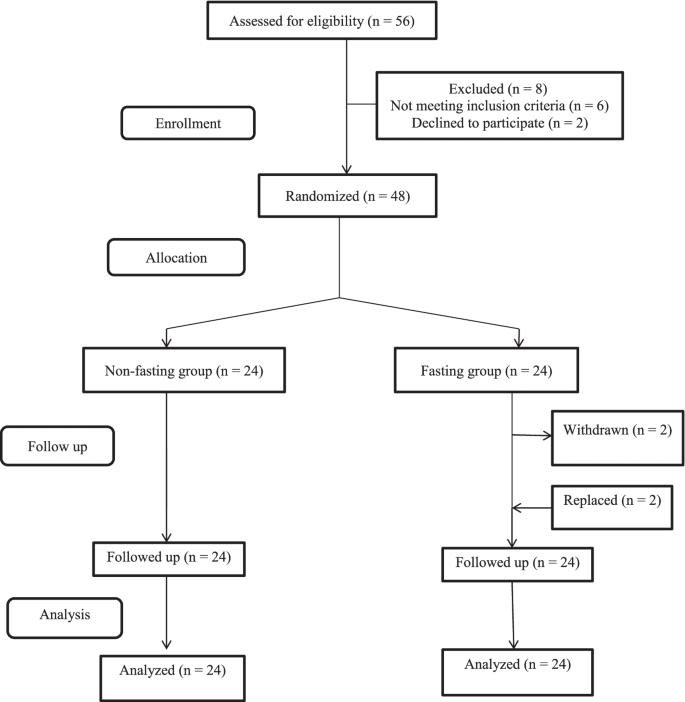
Intermittent fasting (IF) is a type of eating plan that involves periodic periods of time where you don't eat. This can include alternate-day fasting, daily time-restricted feeding, and other methods.
Research has shown that IF can promote weight loss, improve insulin sensitivity, reduce blood sugar, and lower cholesterol levels. It may also decrease inflammation.
What new research is being conducted on the link between intermittent fasting and cancer prevention?
Scientists are learning more about the connection between intermittent fasting and cancer. The research focuses on how fasting may slow the growth of cancer cells, as well as improve the way chemotherapy works in the body.
Researchers are also studying how the immune system may respond to fasting. This is because cancer treatments can cause immunosuppression, which means the immune system stops functioning properly.
They’re also learning more about how autophagy (a process where the body breaks down damaged or unhealthy tissue) may contribute to the development of cancer. While most studies have been done in animals, more research is needed to know if autophagy is helpful or harmful in humans.
For instance, one study found that fasting may reduce the number of tumor-infiltrating lymphocytes (TILs) in the bloodstream and increase the amount of common lymphoid progenitor cells (CLPs), which are precursors to the white blood cells that kill cancers. This could mean that a healthy diet that includes a low-calorie, high-protein plan, along with fasting, can help prevent and treat cancers.
How can intermittent fasting help me reduce my risk of cancer?
Intermittent fasting can help reduce your risk of cancer because it helps lower inflammation, improves insulin sensitivity and enhances the function of your immune system. It also decreases your risk of obesity and high cholesterol.
Studies show that intermittent fasting can improve your body's ability to fight off cancerous cells by reducing the production of hormones and neurochemicals that promote tumor growth. It can also improve your body's immune response by triggering a process called autophagy.
Researchers are also looking at how intermittent fasting can help reduce the side effects of chemotherapy. Cancer treatments can damage healthy cells and cause other health issues, such as weight loss and fatigue.
To avoid side effects, it's important to drink plenty of water throughout the day (roughly two to three liters). A registered dietitian or health care provider can advise you on if you need to add electrolytes to your water. And remember to eat nutritious foods. You'll also want to work closely with a doctor before starting intermittent fasting to make sure it's right for you.
What are the benefits of intermittent fasting?
Intermittent fasting, a diet that involves eating during certain hours of the day and fasting at others, may boost immune system strength. It also has other health benefits, such as reducing inflammation and helping to regulate blood sugar levels.
The best way to reap the benefits of intermittent fasting is to follow a plan that fits your lifestyle. You can opt for whole-day fasting, alternate-day fasting, time-restricted feeding or a combination of these strategies.
Time-restricted feeding, also known as prolonged nighttime fasting, has become popular. It reduces the amount of glucose in the body, making it harder for cancer cells to grow.
This is because cancer cells consume far more glucose than healthy cells do. By limiting the amount of glucose available to cancer cells, intermittent fasting can inhibit their growth and make them more sensitive to treatments such as chemotherapy.
Researchers are investigating the potential role of intermittent fasting in preventing and treating cancer. The studies so far have focused on breast cancer, but the research is ongoing and may also apply to other types of cancer.
What are the risks of intermittent fasting?
A growing number of studies have shown that intermittent fasting can help prevent cancer. But it’s also important to remember that there are risks to this type of diet.
The main risk is that it can cause dehydration. This is because your body needs water to transport nutrients, balance acid levels, regulate hormones and flush out toxins that may be broken down during fasting.
Intermittent fasting can also lead to weight gain. The reason this happens is that it’s hard to keep your body from storing food as fat, which then becomes energy.
Research shows that people who do a fasting-mimicking diet, which means they eat very few calories and then only eat during certain times of the day, may have lower levels of insulin and other key cancer-related proteins. This could be beneficial for cancer patients, especially those who have had chemotherapy or other treatments that have caused them to lose a lot of weight.
Frequently Asked Questions
What foods can you not eat during intermittent fasting
Intermittent fasting demands abstinence. In order to keep your plan intact, you must eliminate certain food groups from your diet that could undermine your efforts.
Your fasts will be more successful if you avoid sugary products, processed foods, as well as unhealthy snacks. Sugary cereals, candy bars, and ice cream are best avoided, no matter what the difficulty.
You should also avoid eating saturated fats. To avoid any health hazards associated with prolonged fasting, foods such as fried foods and fatty meats should be avoided. Foods containing refined carbohydrates (e.g. white bread or chips) should be avoided during fasting.
You should avoid alcohol during intermittent fasting. Alcohol can cause weight gain and hinder the benefits of intermittent fasting. If you remain consistent and only adhere to these guidelines, you'll stay on track throughout your fasts!
Coffee break or fast?
People are increasingly adopting fasting as part their diet and health routines. It can be difficult knowing what you can consume while fasting so that you get all the benefits. What is coffee considered to be a fast?
This is where the problem becomes complicated as each person's body reacts to coffee differently. In general, though, pure black coffee should not cause much disruption to your fast - however, you must consider whether any creams or sugars potentially added would break your fast.
When you are drinking coffee during fasting, it is important to be aware of how your body reacts. Caffeine might cause a delay in fat-burning for some people. You should always consult your healthcare provider if this becomes problematic.
Be aware that specialty and flavoured espressos can have calories. This could lead to breaking your fast. You can make the perfect cup of coffee by using plain black coffee or espresso shots during fasting. They are not high in calories and can help you feel energized while keeping your fasting going.
Overall, researches suggest that small amounts of black coffee are unlikely to disrupt a fast. It is a good idea to experiment with different coffees and be aware of any side effects such as stomachaches or headaches.
What science has to tell us about intermittent fasting
Science's understanding of intermittent fasting may lead to improvements in lifestyle nutrition. Intermittent fasting involves strategically eating meals only during a specific time period and abstaining for the rest of the day. Research suggests that fasting can increase metabolic health and improve cognitive performance when done properly.
Unravelling how this works involves examining what happens inside our bodies during intermittent fasting. Intermittent Fasting can trigger a change in metabolism. It lowers sugar levels and encourages cells to use fat as their primary energy source. This assists in weight loss as it burns stored fat instead of relying on recent food consumed for energy. This helps to preserve normal metabolic function.
Furthermore, new research into intermittent fasting suggests that this could have anti-aging effects on the body by promoting increased autophagy*. Autophagy, which means "self-eating", refers to a vital cellular process in which unused or damaged protein are recycled to keep healthy cells throughout the life. This potential benefit for humans needs more research, but what we do know is promising.
There is evidence to support the positive impact of intermittent fasting on overall health. However it is best to consult your physician before making any major changes. Healthy changes should be made slowly. You should aim for a healthy balance between activity and diet. It's worth speaking to an expert about how intermittent fasting might work for you.
Intermittent fasting can help you shed belly fat
It is crucial to question the status-quo in order to find solutions. Traditional wisdom suggests that exercise and caloric reduction are the best ways to lose belly fat. However, new research suggests that intermittent fasting might be a more effective and quicker way to lose fat.
Intermittent fasting allows you to eat your food within an 8-12-hour timeframe each day. There is a 12--16 hour gap between meals. During these fasting periods, you don't have to worry about counting calories or portioning your meals as you would with consistent calorie restriction.
When practiced correctly, intermittent fasting can ramp up metabolism and burn stored fats more efficiently than other methods of long-term weight loss. You can also increase mental clarity and digestive health, as well as reduce inflammation and the chance of developing chronic diseases like type 2.
It is also easy to practice intermittent fasting. Just set a timer for what you eat and stop eating until that timer goes off. For those looking for a straightforward solution to belly fat reduction and improved health outcomes, intermittent fasting proves to be one of the most efficient ways to do so.
Intermittent fasting can be a great way for weight loss. But it is not a magic bullet. But you must still eat healthy foods, exercise enough and have regular eating windows. If you are pregnant or breastfeeding or have any other medical conditions, it is a good idea consult your doctor before trying a new diet.
What are the rules for intermittent fasting?
To achieve desired results, it is important to understand the rules of intermittent fasting. It's not just about eating less but ensuring that you're consuming the right types and amounts of food during specific periods.
Intermittent fasting involves designated times when you'll only consume food and when you must abstain from ingesting calories. These "fasting windows" can last anywhere from 16 to 24 hrs, giving your body plenty of time to digest and cleanse difficult-to-digestible foods, as well as to speed up your metabolism.
However, this doesn't mean you should starve yourself during fasting windows. These periods are allowed for the consumption of nutrient-rich beverages such as water, lemon water, and tea. You can also enjoy calorie free snacks such as fruits or vegetables, but they must not contain any fats or oils.
This is not an excuse to eat sugary sweets and high-calorie foods after your fast ends. But it is a way to ensure that you are eating healthy. Only once the recommended amount of fasted hours has passed can you consider adding processed snacks like chips or other unhealthy options, as these will quickly undo all your hard work! Instead, try to eat low-glycemic foods during meal windows and focus on nutrient dense options like lean proteins, whole grains grains, and fresh produce as much as possible.
It is important to remember that intermittent fasting doesn't work for everyone. Everybody is different, and each person will react differently to the exact same diet. Before you start any new diet, it is a good idea to talk with your doctor. Also, make sure you get enough sleep and keep hydrated during the whole process.
Are 16/8 intermittant fasting suitable for you?
If you're looking for dietary changes, taking into consideration your current lifestyle and intermittent fasting can make a big difference. 16/8 intermittent fasting refers to a way of eating within an 8 hour window and fasting for 16 hours each day. Intermittent fasting is known to have many health benefits. However, it is important that you research it and decide if it is right for your needs.
It will be easier for you to make this choice if the details of 16/8 Intermittent Fasting are well understood. It is important to reduce your overall calorie intake, but not feel restricted or uncomfortable. It could be as simple as skipping certain meals during the day or eating at certain times such as breakfast and lunch. Knowing how much and how frequently you eat will help you make a plan to achieve your nutrition goals.
Determining whether 16/8 would work for you begins with understanding your body's needs. Variables such as activity level, hormonal imbalances, medical conditions, stress levels, age, and genetics come into play when evaluating one's dietary preferences and food choices. You might find intermittent fasting not to be best suited for your needs or those of your family members. There are many healthy eating options, including low-carb and high-fat diets. Don't be discouraged if you don't find the right one for you.
No two bodies are exactly alike - it is up to you how much energy and effort you put into considering all dieting options when searching for the best suited for your needs. Consider evaluating your needs and determining if the 16/8 Intermittent Fasting method is right for you.
Can I eat food even if I am intermittently fasting?
A successful intermittent fasting period requires that you nourish your body with healthy food. While you may think that you can eat whatever you want and still reap the benefits, you must remember to follow the guidelines and restrictions of your particular fasting method.
It's important to consider what and when you can eat, depending on your specific diet plan. Intermittent fasting is a lifestyle that requires you to eat only during the designated time. Some people follow stricter protocols than others.
Nutritious snacks that are rich in protein and healthy fats are always a good choice. This will keep you from feeling hungry throughout your fasting. It is important to remember that you shouldn't approach calorie restrictions with an all or nothing mentality.
A lot of people benefit from recording what they eat so that they are aware of what they're eating. This allows them to make healthier decisions, regardless when they have to eat. Unhealthy processed foods should be avoided as much as possible to maximize the potential of intermittent fasting for long-term success.
Statistics
- Fat consumption was examined in 1 study, which compared dietary fat intake of 45% versus 25% at the expense of carbohydrate intake. (ncbi.nlm.nih.gov)
- IF participants) IF resulted in weight loss, ranging from 0.8% to 13.0% of baseline body weight (Table 1). (ncbi.nlm.nih.gov)
- IF trials found weight loss of 0.8% to 13.0% of baseline weight with no serious adverse events. (ncbi.nlm.nih.gov)
- consumption was examined in 1 study, which compared dietary fat intake of 45% versus 25% at the expense of carbohydrate intake. (ncbi.nlm.nih.gov)
External Links
pubmed.ncbi.nlm.nih.gov
- Intermittent fasting: Does it have a place in diabetes treatment? PubMed: A review of the literature, and a guide for primary care doctors - PubMed
- Daily Fasting Improves Health and Survival in Male Mice Independent of Diet Composition and Calories - PubMed
nejm.org
jamanetwork.com
doi.org
- Nutrients
- 24-Hour Fasting With Diabetes: guide for physicians advising patients about medication adjustments prior to religious observances or outpatient surgical procedures - Grajower – 2011 - Diabetes/Metabolism Reviews and Research - Wiley Online Library
How To
Getting started with Intermittent Fasting. A Beginner’s Guide
Intermittent eating is a popular method for weight loss. There are several methods to intermittent fasting. One is the 16/8 method where you fast for 16 hour and then eat in an 8-hour time window. Another is the 5:2 approach, where you eat as normal for five days and then cut back on your calories to 500-600 calorie the remaining two days.
If you're interested in trying intermittent fasting, there are a few key steps you should follow to get started:
-
Setting goals: It's important that you understand why you want to start intermittent fasting, and what your goals are. Some people intermittent fast to lose weight while others do it to improve their overall health and reduce the risk for certain diseases.
-
Please choose a mode: There are many methods for intermittent fasting. Consider factors such as your schedule, lifestyle, and eating habits when deciding which method to try.
-
Plan your meals. Once you have decided on an intermittent fasting mode, plan your meals accordingly. If you use the 16/8 approach, for example, choose when to have your meals during your 8 hour eating window. To support your health and fasting, make sure you include high-quality, nutritionally dense foods.
-
Stay hydrated: It's important to drink plenty of water while practicing intermittent fasting, as this can help keep you feeling full and satisfied. Get at least 8-10 glasses of water per day. Consider adding in other low-calorie, hydrating drinks like unsweetened coffee and herbal tea.
-
Consistency will be your key to success with intermittent fasting. Stick to your chosen method as closely and patiently as you can. You may not see the results immediately.
Intermittent fasting is a powerful tool to lose weight and improve overall health. However, it is not suitable for all. You should consult your doctor before you consider intermittent fasting. If you have the right attitude and are committed, intermittent fasting will greatly enhance your overall health.
Resources:
 |
How To Do Intermittent Fasting For Health - Dr Sten Ekberg Wellness For LifeHow To Do Intermittent Fasting For Health and Long Lasting Weight Loss. Learn what is intermittent fasting and how to do it without feeling hungry. You will |
 |
What are BENEFITS of Intermittent Fasting?Some research suggests that intermittent fasting may be more beneficial than other diets for reducing inflammation and improving conditions associated with |
 |
[Doctorly Unhinged - EP1] Ozempic Woes, DEBUNKING Intermittent Fasting, and the DANGERS of ManicuresSUBSCRIBE TO OUR PODCAST! https://doctorly.podlink.to/unhinged Is this trending medication that’s been touted to cause dramatic weight loss changing |
 |
The Good Life: Intermittent fasting: Ideal for weight loss?We decode the hype around one of the most popular eating methods for weight loss. Is intermittent fasting for everyone? #thegoodlife #intermittentfasting |
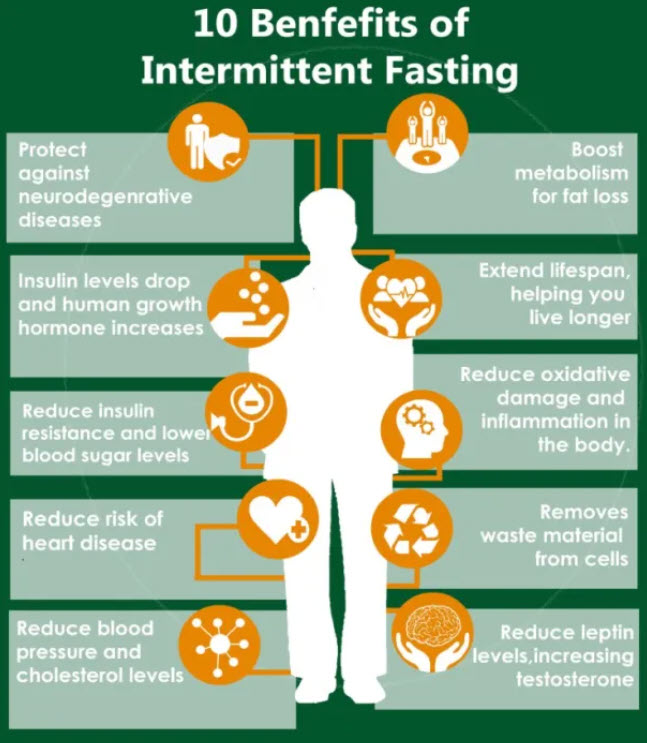 |
Intermittent Fasting For Weight LossWeight loss with Ketosis |
 |
Intermittent Fasting: A Two-Month Experiment. Does It Work? | Talking Point | Full EpisodeAfter drinking sugar-laden bubble tea three times a week for a month for an earlier Talking Point episode, host Steve Chia is ready to lose the weight he |
 |
Intermittent Fasting May Have Health Benefits Beyond Weight Loss | TODAYAccording to an article in the New England Journal of Medicine, new evidence suggests that intermittent fasting could provide many health benefits beyond |
 |
Don’t know whether to cut or bulkDon’t know whether to cut or bulk |
 |
What’s your favorite way to eat chicken?What’s your favorite way to eat chicken? |
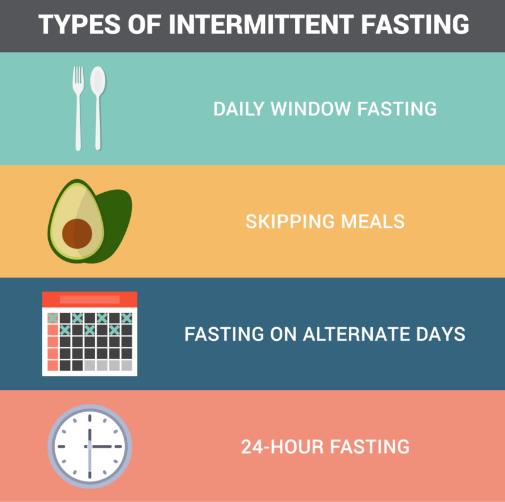 |
Intermittent Fasting For Pregnant WomenWhile intermittent fasting for pregnancy has its benefits, it can also be dangerous. Read on to learn more about the risks and benefits of.. |
 |
Intermittent Fasting TESTED - 30 Day Before & AfterGo to https://NordVPN.com/goalguys and use code GOALGUYS to get a 2-year plan plus 1 additional month with a huge discount. It’s risk-free with Nord’s 30-day |
 |
Intermittent Fasting and Low-Carb DietIf you want to lose weight, try combining intermittent fasting with a low-carb diet. Both methods help you lose fat and control health conditions... |
 |
Intermittent Fasting Guide for 2022 | Doctor Mike HansenIntermittent Fasting Guide for 2022 | Doctor Mike Hansen Did you know that it's been predicted that by 2030, more than half of the U.S population will be |
 |
How to do Intermittent Fasting: Complete GuideJoin my Email List: https://www.thomasdelauer.com Check out Thrive Market: http://ThriveMarket.com/Thomas Follow More of My […] |
 |
How Autophagy WorksAutophagy is a dynamic degradation system that promotes tumor survival. It also promotes the growth of established tumors and facilitates metastasis. .. |
 |
Intermittent Fasting Myths - Top 5 | Jason FungI cover the most important myths about intermittent fasting and why they are not true. Check out my website at https://www.doctorjasonfung.com and blog at |
 |
Intermittent Fasting 8/16You may have heard of the intermittent fasting 8/16 or 12/12 time restriction. This type of fast requires you to go without eating or drinking for.. |
 |
Intermittent Fasting For WomenSide effectsWomen who are looking for a way to lose weight can try intermittent fasting. However, there are several side effects to this type of.. |
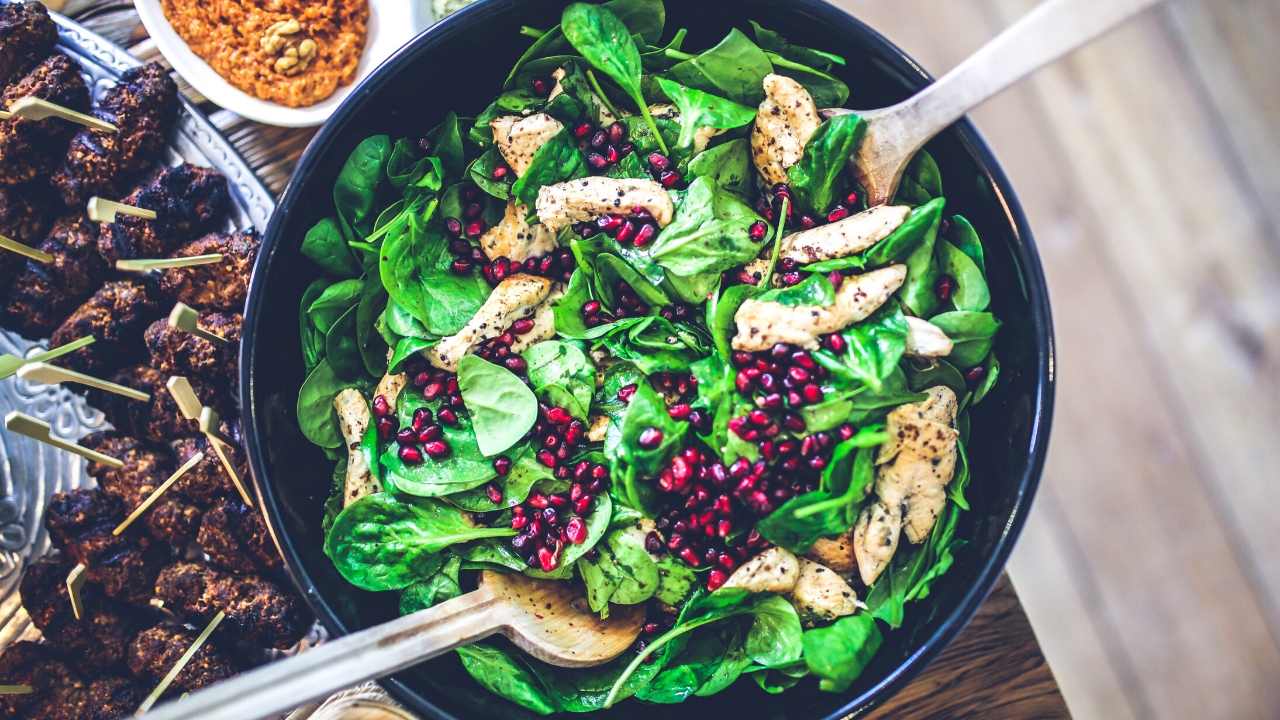 |
How Much Cholesterol in a DayHow much cholesterol in a day depends on a number of factors. While dietary cholesterol is not necessarily bad, excess intake can lead to serious.. |
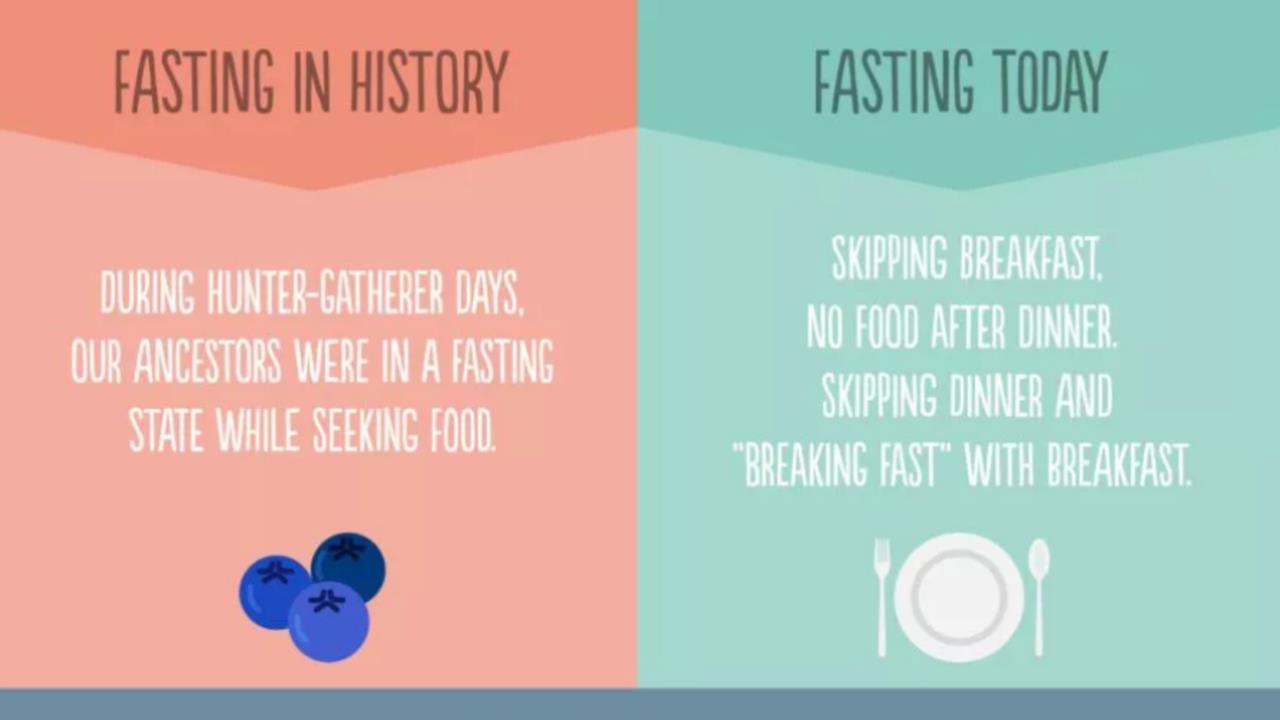 |
Is Skipping Breakfast Right For You?Skipping breakfast has a number of benefits, including the ability to lose weight, improve training performance, and increase growth hormone levels... |
 |
The Benefits of the AIP DietThe AIP diet has a number of health benefits. Besides reducing inflammation and weight, this diet also provides essential nutrients. These include.. |
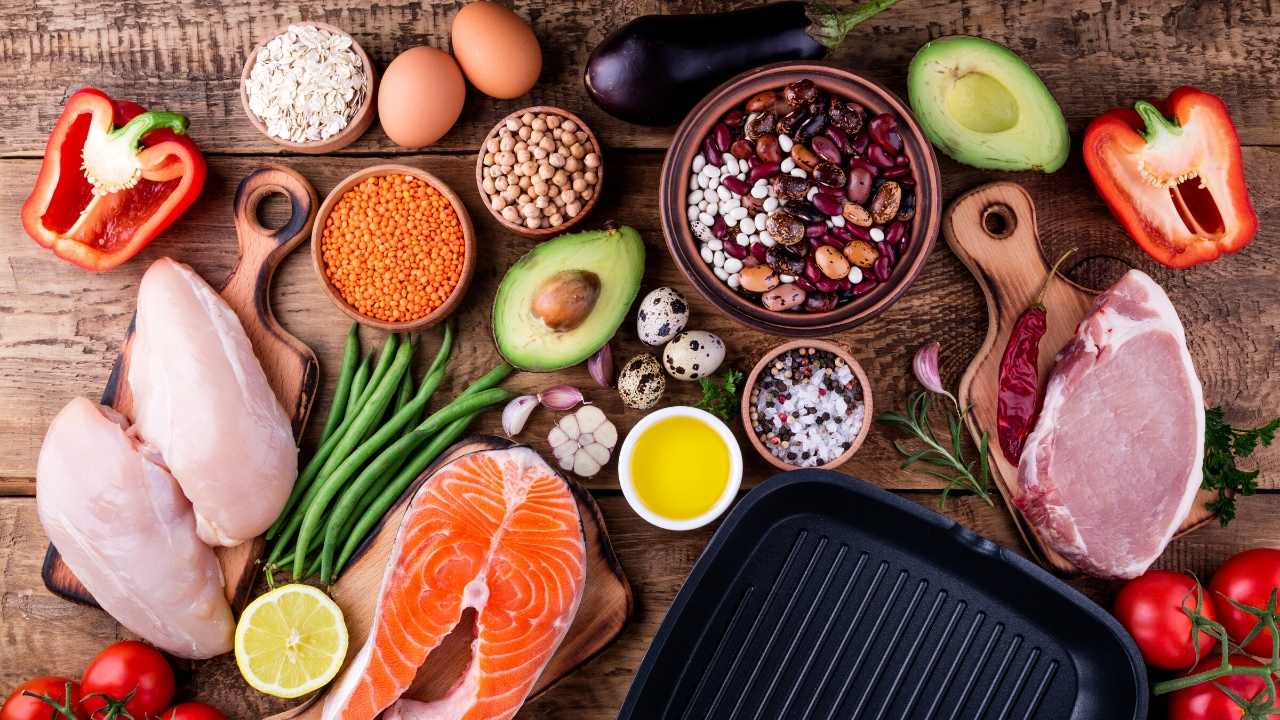 |
Is Eating Only One Meal A Day a Good Idea?Eating only one meal a day is not a good idea, and it is not sustainable for most people. It may help some people lose weight, but for the average.. |
 |
What Are the Side Effects of Water Fasting?Water fasting is a form of fasting, where a person consumes only water during a period of time. It may be undertaken for medical reasons or for.. |
 |
Intermittent Fasting and Blood PressureResearchers have discovered that intermittent fasting may have positive effects on blood pressure. Blood pressure affects the risk of heart disease,.. |
 |
Intermittent Fasting For Weight LossAll you need to know about Intermittent fasting and weight loss |
 |
Is it Okay to Drink Coffee on Intermittent Fasting?You might have heard that it's okay to drink black coffee on intermittent fasting. But did you know you can also enjoy a cold brew? What about.. |
 |
How to Start Fasting 48 HoursIf you are considering fasting 48 hours, here are some of the benefits. There are also a few precautions you should keep in mind before you begin. In |
 |
A Psoriasis Diet Can Help Reduce the Severity of Your PsoriasisA psoriasis diet should consist of eating foods that are rich in vitamin A and C, as well as avoiding sugars and processed foods. Avoid eating red.. |
 |
The DASH Diet to Prevent HypertensionThe DASH diet is an eating plan that was developed by the National Heart, Lung, and Blood Institute. It focuses on fruits and vegetables, low-fat.. |
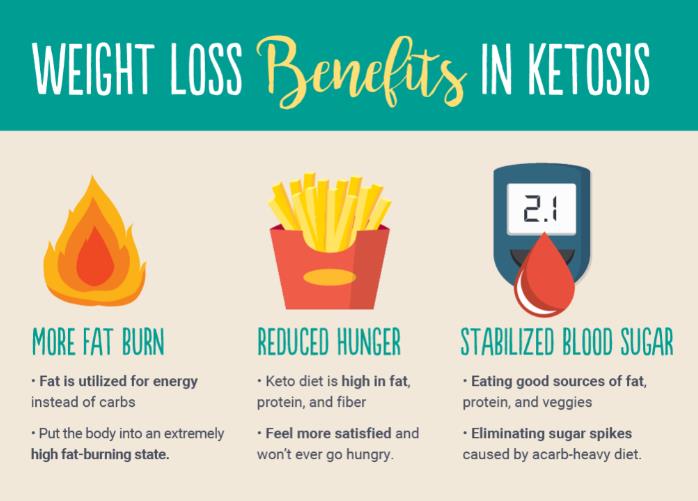 |
LIFE Fasting Tracker - LIFE Apps | LIVE and LEARNThe best, and free, intermittent fasting tracking app for iPhone and Android. Easy to use. Supports all fasting types. Fast with friends. Download for Free. |
 |
Intermittent Fasting AppsIf you're on an intermittent fasting regimen, it's important to keep track of your food and exercise intake. Several apps can help you stay on track.. |
 |
Time Restricted EatingIf you're interested in losing weight or improving your health, you may want to try Time-restricted eating or intermittent fasting. Read on to learn.. |
 |
Reactive HypoglycemiaThere are several different ways to treat reactive hypoglycemia. The first step is to reduce or eliminate your caffeine and alcohol intake. You may.. |
 |
Low-Carb Meal PlansLow-carbohydrate meal plans are based on limiting the amount of carbohydrates you eat. Instead, you replace foods that are high in carbohydrates with |
 |
Intermittent Fasting: What is it, and how does it work?Intermittent fasting involves switching between fasting and eating on a regular schedule. This type of fasting could manage your weight or even some forms of |
 |
How Autophagy WorksAutophagy is a dynamic degradation system that promotes tumor survival. It also promotes the growth of established tumors and facilitates metastasis. |
 |
The 12-Hour Fast - What Are the Benefits of a 12-Hour Fast?The 12-hour fast is a popular dietary approach that can help you lose weight. It forces your body to rely on its stored fats for energy. It has also.. |
 |
Fasting Before Working OutFasting before a workout has its advantages. Not only does it provide more energy during a workout, it can also help with digestion, which can take.. |
 |
Healthy Ways to Lose WeightLosing weight is a great way to improve your health and reduce your risk of certain conditions. It can also reduce your total cholesterol levels and.. |
 |
Intermittent Fasting 101 — The Ultimate Beginner's GuideThis is a detailed guide to intermittent fasting (IF). Studies show that it can help you lose weight, improve health and perhaps even live longer. |
 |
Top Intermittent Fasting AdvantagesThere are many advantages to intermittent fasting as a strategy for weight loss. Intermittent fasting can work with any diet... |
 |
Weight Loss (Low Carbohydrate Diets)Low carb diets have often been used throughout history for weight loss. Although sometimes called a fad, low carb diets have actually more science... |
 |
The Key Factors of Weight LossWeight gain and obesity, like any medical disease, is multifactorial. This means that there are many factors that cause weight gain... |
 |
How Doctors Lose WeightHow do doctors lose weight? For their patients, doctors often advise following standard diets, but when trying to lose weight themselves... |
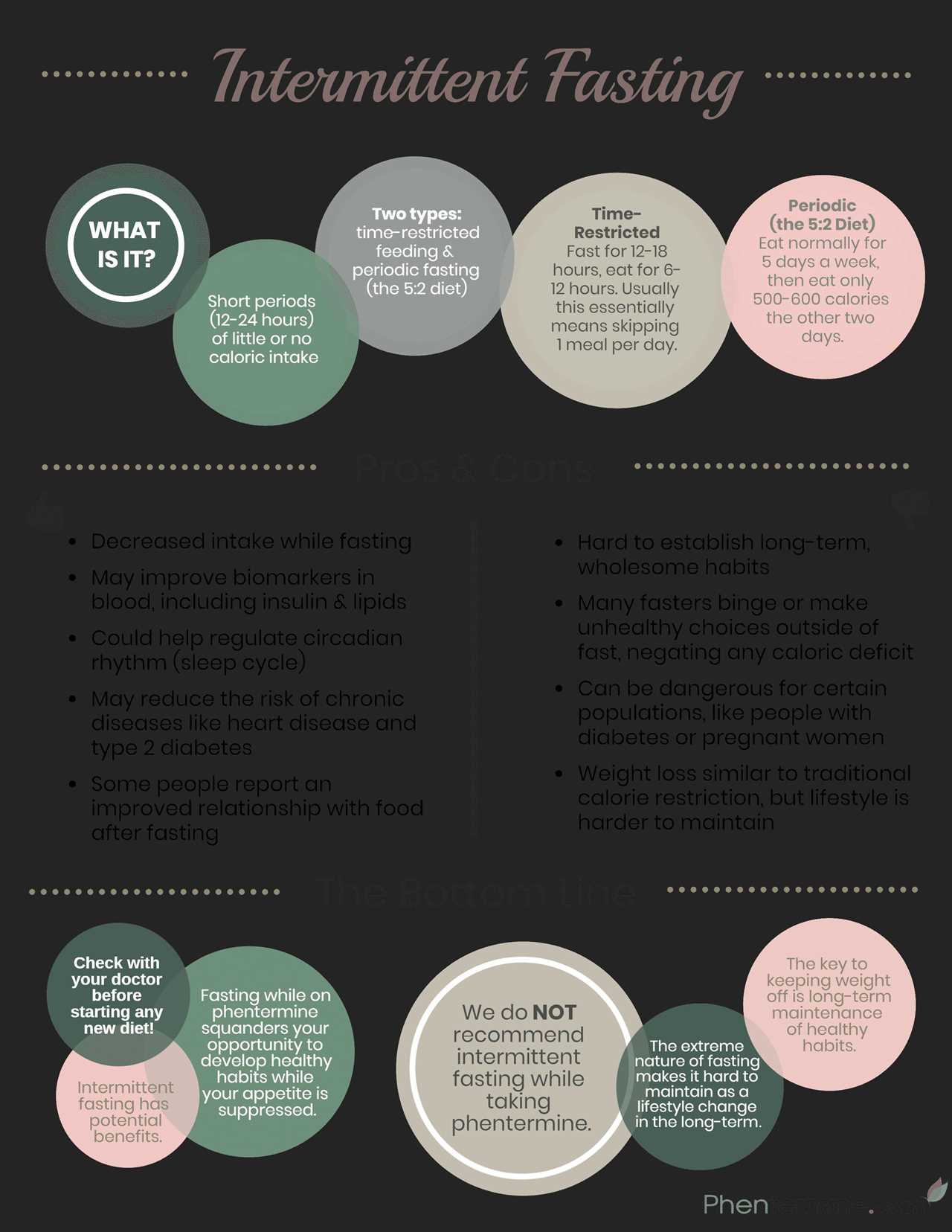 |
Is intermittent fasting good for you?Intermittent fasting isn't new, but it's gaining followers. What's the appeal? |
 |
Vacation Weight Loss PlanWhat is the best vacation weight loss plan? Most people [...] |
 |
Should I (lean-) Bulk or Cut?Should I (lean-) Bulk or Cut? |
 |
100lbs down!100lbs down! |
 |
Calculating the Maintenance calories on workout and rest daysCalculating the Maintenance calories on workout and rest days |
 |
Intermittent fasting: The positive news continues - Harvard HealthHarvard research about Intermittent fasting ... |
 |
Rat Model: Intermittent Fasting Normalizes High Blood Pressure Induced by Harmful Intestinal BacteriaPrevious studies have shown that a harmful combination of gut bacteria can cause high blood pressure (hypertension) in humans and other animals. Having a |
 |
Your D-I-E-T Meditation PlaylistIn my TEDx talk, I suggest recasting the noxious word “diet” into D-I-E-T — a reminder to ask ourselves “Did I Enrich Today?” One of the ways we can enrich…The |
 |
Holiday Health (Damage Control)With the holidays on us, maybe your intermittent fasting schedule isn’t as rigorous as it once was. That’s not necessarily a bad thing, because social |
 |
You Got a Zero.Zero’s not been my hero. Through grade school and college, zeroes used to be something of a monster in my mind. Teachers illustrated just how bad a zero is |
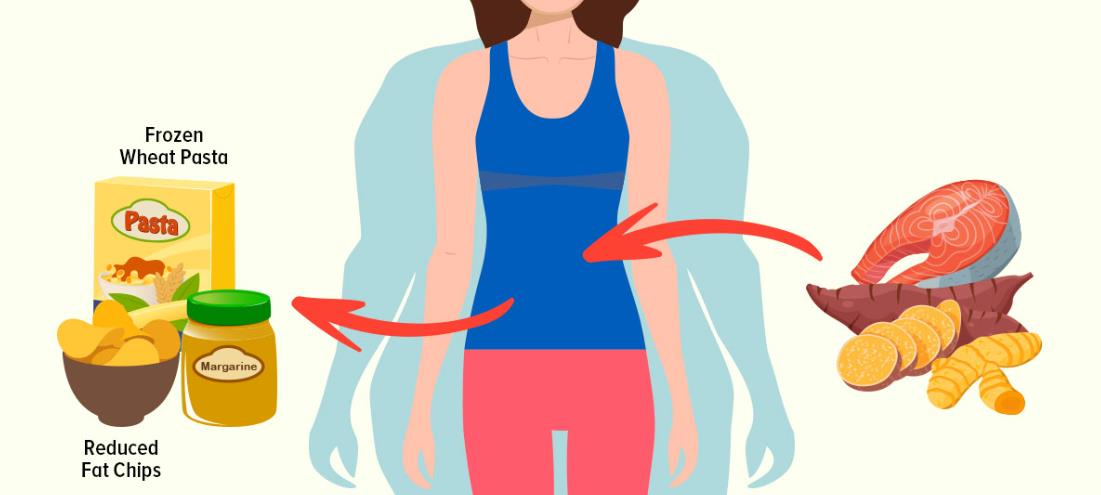 |
Six ways to do intermittent fasting: The best methodsIntermittent fasting is an increasingly popular diet option for weight loss. There are several programs, but this guide can help you find out which one is |
 |
Intermittent Fasting ExperiencesI took part in an energetic discussion of intermittent fasting experiences as part of the release of Women Action Takers Who Gained By Losing for which I wrote |
 |
How to Break a Fast: What to Eat After FastingHow to Break a Fast: What to Eat After Fasting Written by Stephen Anton PhD on May 15th, 2022 How to break a fast? This is an excellent question and one |
 |
How to Believe in Yourself: 10 Tips for Becoming Your Best SelfHow to Believe in Yourself: 10 Tips for Becoming Your Best Self Guest Post by William Anton PhD on June 12th, 2022 William D. Anton, Ph.D is a renowned |
 |
36-Hour Fast (Monk Fast): Everything You Need to Know36-Hour Fast (Monk Fast): Everything You Need to Know Written by Stephen Anton PhD on July 5th, 2022 The 36-hour fast is a challenging fast in that it |
 |
Diet A to Z: Intermittent FastingThe two-day-a-week diet: How intermittent fasting can help you lose weight and boost your health. |
 |
18/6 Intermittent Fasting: Is It the Right Plan for You?18/6 Intermittent Fasting: Is It the Right Plan for You? Written by Stephen Anton PhD on November 29th, 2022 Intermittent fasting has become one of the |
 |
20/4 Intermittent Fasting: The Pros and Cons of a Longer Fast20/4 Intermittent Fasting: The Pros and Cons of a Longer Fast Written by Stephen Anton PhD on January 25th, 2023 There are so many different approaches to |
 |
Everything you need to know about the OMAD dietThe one meal a day (OMAD) diet is a type of time-restricted eating intermittent fasting protocol that involves—you guessed it—eating just one meal a day and |
 |
The ultimate guide to intermittent fasting 20/4When we’re trying to lose weight, we usually think about what we can and can’t eat. Bye-bye beer and burgers. Helloooo carrots and kale! But with intermittent |
 |
The Flexitarian Diet — A Beginner’s Guide by SimpleFrom workouts to working hours, most of us enjoy a little flexibility. So it’s no wonder that when it comes to what we eat, a little wiggle room goes a long |
 |
The Mediterranean diet for weight lossPeople have loved the Mediterranean diet for many years. It’s not a “weight loss diet,” per se. It’s just how people in places close to the Mediterranean Sea |
 |
The complete guide to 18/6 intermittent fastingIntermittent fasting (IF) regularly shows up as many health-seekers’ go-to eating plan, and for good reason. Research suggests that it could have a profound |
 |
The Impact of Different Drinks during Intermittent Fasting: Benefits, Downsides, and ResearchA common dietary strategy called intermittent fasting (IF) alternates between periods of fasting and eating. Apart for water, black coffee, and tea, people |
 |
Intermittent fasting (IF): Your complete guide - Diet DoctorIntermittent fasting is popular, effective, and easy. This guide tells you how to get started with a successful intermittent fasting routine. |
 |
Intermittent Fasting and Muscle Gain: Benefits, Downsides, and ResearchA common dietary strategy for people who want to increase their muscle mass while also aiding fat loss is intermittent fasting (IF). Although IF has mostly |
 |
Burning Belly Fat: Intermittent Keto vs Intermittent Fasting – Which is More Effective?Visceral fat, commonly referred to as belly fat, is the fat that builds up around the midsection and is associated with a number of health issues, such as |
 |
When you’re ill, is intermittent fasting safe? Precautions and considerations.Those who want to reduce weight, get healthier, or even live longer are increasingly following the trend of intermittent fasting. Yet if you’re sick, you might |
 |
When Intermittent Fasting Stops Working: Reasons, Solutions, and EffectivenessRecently, intermittent fasting has become more well-liked as a technique to reduce weight, enhance general health and longevity, and even improve mental |
 |
5 Intermittent Fasting Methods, ReviewedIntermittent fasting comes in many shapes and forms. This article reviews its pros and cons so you can decide if it's worth a try. |

